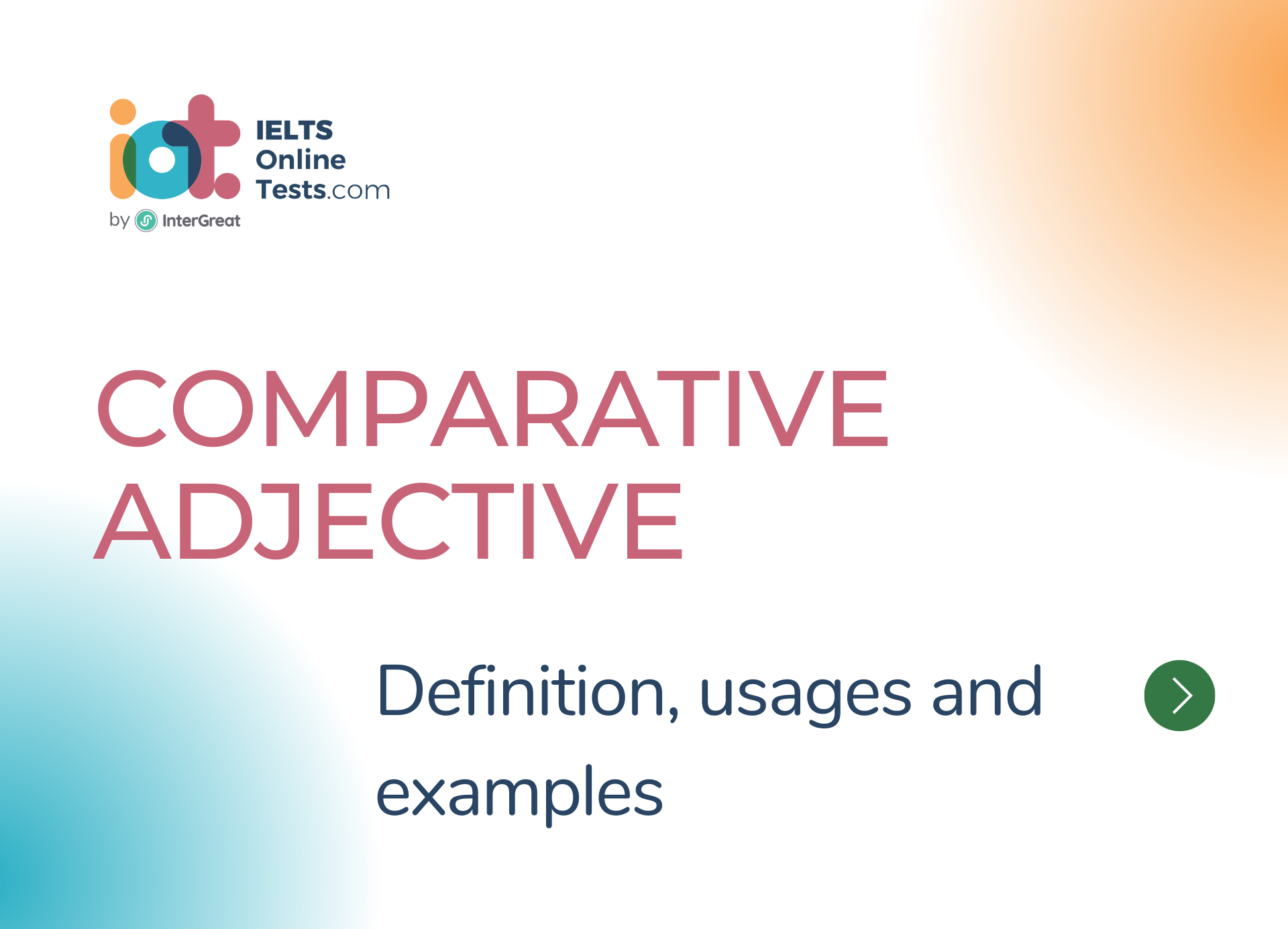
Comparative Adjective definition, usages and examples
Comparative adjectives are used to compare the differences in quality or quantity between two or more nouns. They indicate that one noun has a higher or lower degree of a particular characteristic in comparison to another.
Here are some key points about comparative adjectives:
Definition: Comparative adjectives modify nouns by indicating a higher or lower degree of a quality when comparing two or more things.
Formation: Most comparative adjectives are formed by adding "-er" to the base adjective for one-syllable adjectives, or by using "more" before the adjective for adjectives with two or more syllables.
- Example:
- "tall" (one syllable) becomes "taller,"
- "beautiful" (two syllables) becomes "more beautiful."
- Example:
Two-Item Comparison: Comparative adjectives are used when comparing two things or individuals.
- Example:
- "This book is longer than that book,"
- "She is happier than her sister."
- Example:
Comparative Marker "Than": The word "than" is used to connect the two nouns being compared.
- Example:
- "She is taller than her friend,"
- "He runs faster than his brother."
- Example:
Degree of Comparison: Comparative adjectives indicate a higher or lower degree of a particular quality.
- Example:
- "The weather is colder today than yesterday,"
- "He is more talented than his peers."
- Example:
Irregular Forms: Some adjectives have irregular comparative forms that do not follow the standard "-er" or "more" pattern.
- Example:
- "good" becomes "better,"
- "bad" becomes "worse,"
- "far" becomes "farther" or "further."
- Good: "She is better at math than her classmates."
- Bad: "This weather is worse than yesterday."
- Far: "The second destination is farther than the first one."
- Little: "He has less money than his friend."
- Many/Much: "I have more books than she does."
- Well: "He sings better than anyone else."
- Badly: "She dances worse than her sister."
- Far: "He threw the ball farther than the other player."
- Little: "She has less time to complete the task."
- Well: "He plays the guitar better than I do."
- Example:
Superlative Degree: Comparative adjectives can also be used to form superlative degree, indicating the highest or lowest degree of a quality among three or more things.
- Example:
- "She is the tallest girl in the class,"
- "This is the most interesting book I've read."
- Example:
Agreement: Comparative adjectives do not change based on the number or gender of the noun they modify.
- Example:
- "The taller trees,"
- "The faster cars."
- Example:
Comparative adjectives allow us to make comparisons and express the relative degree of a quality between two or more things. By using them correctly, you can convey the differences in characteristics and create more nuanced descriptions in your writing or speech.




